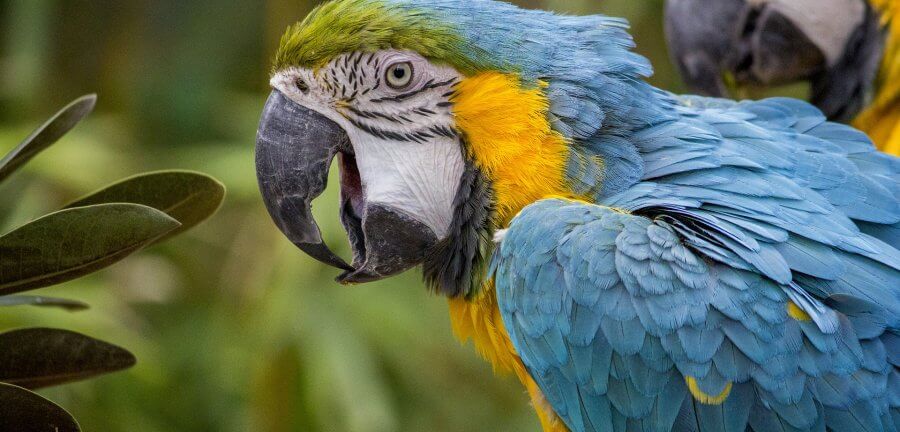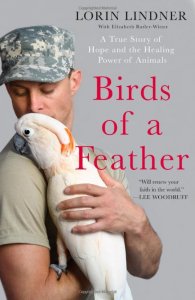It may seem like an unlikely pairing: Fragile, exotic birds and tough, rough-around-the-edges veterans. But Dr. Lorin Lindner realized that they have much in common: Both groups have been traumatized, wounded, and betrayed by those they should have been able to count on. And they both have the power to heal each other and themselves.
Lindner’s book Birds of a Feather: A True Story of Hope and the Healing Power of Animals tells their stories. Lindner, a psychologist, was working at the West Los Angeles VA Healthcare Center helping veterans with post-traumatic stress disorder—many of whom were also ex-convicts, homeless, and addicted to drugs and alcohol. She started taking her rescued birds, Sammy and Mango, into her office so that they wouldn’t be left alone all day. It wasn’t long before she noticed the profound effect that the birds had on some of the veterans. They would open up, interacting with and talking to the birds—things that they sometimes struggled to do with humans. The seeds were planted for Lindner’s idea of building a bird sanctuary on the VA campus.
Today, Serenity Park is home to some 34 parrots, who are meticulously cared for each day by veterans who feed them, clean and repair their enclosures, build them new aviaries, and spend countless hours earning their trust and affection. Many of these veterans have graduated from the program and gone on to reconnect with their families, find good jobs, and lead fulfilling lives. The birds—whose scars come not from the battlefield but from being violently captured from their homes, sold in the pet trade, caged, ignored, and abandoned by the people they trusted—are healing, too.
Duke and Stevie are one beautiful example. After his military service, Duke had spent most of his life behind bars. “Getting drugs and money was all that really mattered to him,” Lindner writes. After a couple weeks of volunteering at the sanctuary, Duke asked if he could come in early. His supervisor found him sitting in the aviary with a cockatoo named Stevie, sharing his breakfast with the bird. Normally, Stevie would swoop down and bite anyone who tried to enter his enclosure, but somehow, Duke had earned his trust. Stevie was relaxed, perched on Duke’s shoulder. “Here were a tough guy and a tough bird just sharing a cozy little breakfast together,” Lindner writes. “Duke and Stevie were both tough on the exterior, but when they trusted someone, they could be gentle.”
Duke continued to come in early and would sit and talk to Stevie for hours. He recounted how this helped him to heal: “When I talked to all those counselors, they thought they had me all figured out. Stevie just listens. No judgment. I swear I learned more in a few months talking to him than I did in fourteen years talking to counselors. Honest to God, it’s like he saw me and said, ‘Now there’s a guy who needs help.’ And all I have to pay him is a pet and a little oatmeal.” He went on to say, “We understand each other. I’ve been in a cage most of my life, and he’ll be in a cage the rest of his. I feel like I’m bringing him a little freedom.”
Birds of a Feather is full of stories like this. It will leave you with a deeper compassion for veterans, birds, and all other living beings and will renew your hope in the ability we all have to make a positive difference in each other’s lives.






